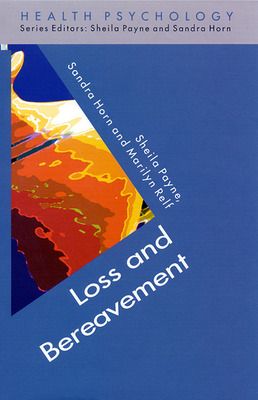Loss and Bereavement
1st Edition
0335232523
·
9780335232529
© 1999 | Published: November 16, 1999
How have people sought to understand loss and bereavement?What are the current theoretical approaches to loss and bereavement?What are the implications of these approaches for interventions?This book aims to provide students with an understanding of …
Read More
Request More Info
After you purchase your eBook, you will need to download VitalSource Bookshelf, a free app or desktop version here. Then login or create an account and enter the code from your order confirmation email to access your eBook.
- Access the eBook anytime, anywhere: online or offline
- Create notes, flashcards and make annotations while you study
- Full searchable content: quickly find the answers you are looking for
Series editors' foreword
Introduction
Loss in society
The impact of loss
stress and coping
Theoretical perspectives on the family
Theoretical perspectives
life span development
The development of models of adaptation to loss
The application of models of loss in clinical and community settings
References
Index.
Introduction
Loss in society
The impact of loss
stress and coping
Theoretical perspectives on the family
Theoretical perspectives
life span development
The development of models of adaptation to loss
The application of models of loss in clinical and community settings
References
Index.
How have people sought to understand loss and bereavement?
What are the current theoretical approaches to loss and bereavement?
What are the implications of these approaches for interventions?
This book aims to provide students with an understanding of important theoretical perspectives and specific models of adaptation to loss. It is assumed that loss and change are normal processes which occur within a social and cultural context, and the reader is introduced to historical and cultural perspectives which illustrate the diversity of approaches to loss. Major theoretical perspectives are explored to enable students to understand their origins and influence. The authors go on to review the development of common models used to conceptualise individual reactions to loss and provide a critique of these models, highlighting the assumptions that underpin them. Finally, they discuss how these conceptual models have actually been used in clinical and community interventions. This is a comprehensive text describing the variety of approaches available to understand the process of loss and bereavement.
What are the current theoretical approaches to loss and bereavement?
What are the implications of these approaches for interventions?
This book aims to provide students with an understanding of important theoretical perspectives and specific models of adaptation to loss. It is assumed that loss and change are normal processes which occur within a social and cultural context, and the reader is introduced to historical and cultural perspectives which illustrate the diversity of approaches to loss. Major theoretical perspectives are explored to enable students to understand their origins and influence. The authors go on to review the development of common models used to conceptualise individual reactions to loss and provide a critique of these models, highlighting the assumptions that underpin them. Finally, they discuss how these conceptual models have actually been used in clinical and community interventions. This is a comprehensive text describing the variety of approaches available to understand the process of loss and bereavement.

